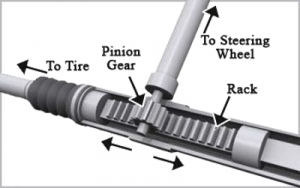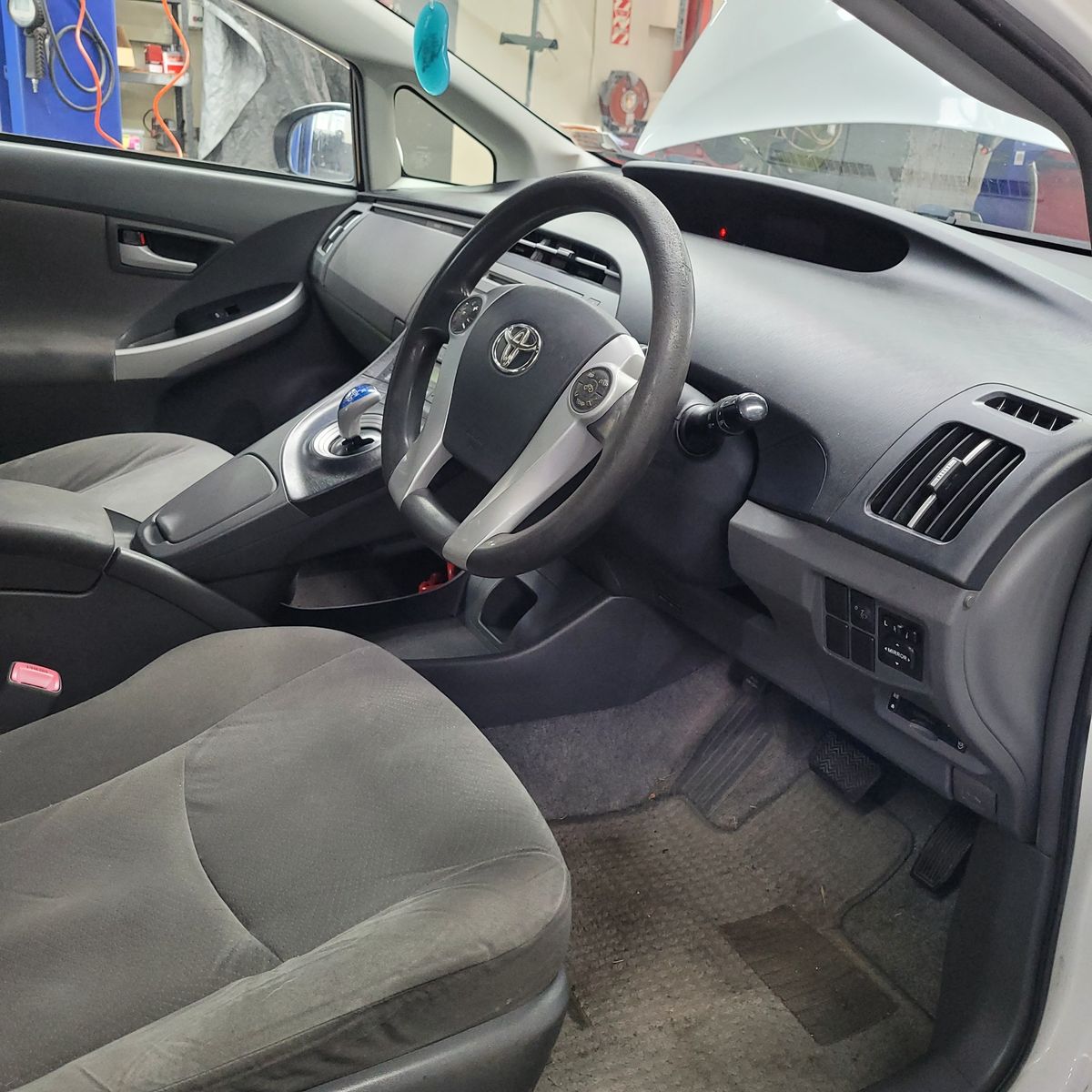About your car’s steering system:

The car steering system consists of several components which help your car to turn and corner properly. Its purpose is to form a connection between the steering wheel and the tyres, allowing the car wheels to respond correctly to your steering input.
Most cars have a power steering rack and pinion steering system, which consists of a rack, pinion, steering column, tie rods and joints. Turning the pinion makes the rack move, giving the wheels the necessary energy to turn according to the force applied to the steering wheel. The tie rod is used to connect the steering system to the wheels. Steering rack ends are used to connect the steering column and rack, allowing a smooth transmission of rotary power from any angle.
Most new cars also have power steering, a feature which reduces the amount of force needed to turn your turn the steering wheel. This system uses power steering fluid to create hydraulic energy to multiply the force of the steering wheel’s input.
Learn more about the power steering system >
Some causes of steering problems:
Damaged tie rods – Eventually, the car tie rods can wear out. This can cause your vehicle’s steering to become miss aligned, as well as increasing tyre wear and possible steering rattles over time.
Worn or damaged ball joints – if the car steering ball joint is damaged or worn out, your car wheels may be on slightly different angles while driving leading to possible poor car cornering and increased car tyre wear.
Power steering problems – The power steering system may malfunction. This may happen due to a fluid leak, or a faulty car power steering pump, car power steering pump belt, or damaged power steering pump hoses.
Damaged steering shaft – A damaged car steering shaft will cause all sorts of problems, often making loud noises and making your car difficult to turn.
Loose components – Sometimes, something as small as a loose nut can cause your steering wheel to shake while you are driving.
Wheels out of balance – if your wheels are out of balance (especially your front wheels) you may experience shaking and vibration in your steering wheel.
Damaged car strut tower and shock absorbers – if parts of your cars suspension system shock absorbers or front strut towers are damaged or worn, you could experience rattling, vibrations, poor car cornering and less effective car braking
Common symptoms of a damaged steering system:
Vibrating steering wheel – A loose or damaged steering component can cause your steering wheel to shake. This shaking frequency will increase at higher speeds.
Difficulty turning – If your power steering system isn’t working correctly, you may struggle to turn and steer your vehicle. This may also happen if there is damage to your car’s steering column or rack/pinion. If the problem is power steering related, the power steering light may turn on (if your car has one).
Grinding noises while turning – You may hear grinding noises when you turn your car. This is often caused by problems with your steering column or universal joints.
Car pulling to the left or right – In the event that your steering system is not aligned correctly, your car may pull to the left or right while you are driving.
Car Steering Inspection in Hamilton
A healthy steering system is vital to the safety and driveability of your vehicle. At Grimmer Motors, we can provide high-quality steering system diagnostics and replacements for various parts. This will allow your car to drive and turn smoothly without any problems.
Our experienced, and qualified local mechanics can quickly diagnose your vehicle’s steering issues. We can then provide quality diagnostics and new steering parts to fix the problem.
For all your car steering services in Hamilton, contact Grimmer Motors today!

